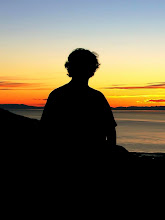‘Wu wei’, which roughly translates to ‘spontaneous/natural action’, is a Taoist concept applicable to the martial arts. The idea is for the martial artist to neither act nor remain passive, for these are both unilateral; both are states of inertia. He remains free from inertia in his interaction with the universe – which is represented by the opponent – and restores balance with minimal expenditure of energy. He forces neither action nor inaction, he neither attacks nor defends, he is neither protagonist nor antagonist. He rises above and beyond being a party to any conflict, and simply prevails through them. The opponent’s force which disturbs balance/oneness is countered with a smaller force that complements, rather than opposes it.
To achieve ‘wu wei’, the martial artist must first look inward and quell the fluctuations within. He must achieve a state of calm hyper-awareness where he is keenly attuned to all his senses. In this state of mind, he is also able to rapidly process sensory information and make decisions. The key to speeding up the thought process is to adopt a non-linear approach that utilizes the pattern recognition and predictive functions of the neocortex. The subjective experience of such a mental state may be perceived as a slowing down of time and it is absolutely vital to ‘wu wei’. In short, he must be like still water, reflecting his opponent’s weaknesses and letting him defeat himself.
His attacks find his opponent’s vulnerabilities because they are simply a response to the existence of an opening. This is what Bruce Lee referred to when he talked about his ‘fist striking on its own’ and what Miyamoto Musashi called the ‘strike of non-thought’. Likewise, wu wei allows the martial artist to avoid and deflect his opponent’s attacks and frustrate him at every turn. Thereby, he is able to turn his opponent against himself in both mind and body and ultimately dissipate his very will to fight. At this level, the martial arts become, to use Bruce Lee’s words, a means of ‘honest self-expression’ and transcend from a fighting art to a path to self-realization.
However, honestly expression requires intense introspection and deep knowledge of the self. He must shed all that is unnecessary – reducing himself, body and mind, in the crucible of training to the solid core of his being. While he must constantly strive for improvement, he must do so without being at conflict with himself – in short, he must accept his nature and his humanity. He must be comfortable in the knowledge that the ideal will always remain beyond his grasp. Such realization will bring lasting peace. And, it is this inner calm, rather than aggression, that brings clarity of expression and the ability to prevail.
In achieving such growth, the martial artist surpasses action and reaction, attack and defense, indeed, all limitations. And he no longer limits himself to a style or even to action that is only physical. He applies himself as necessary to the situation at hand, be it through thought, word or deed. His goal is beyond even victory. In a way, he becomes the eternal, the intangible, his ‘self’ no longer a party to any conflict. The opponent is then reduced to a helpless hand swatting at thin air. Such is the method of ‘wei wu wei’.

4 comments:
One of the other things that's key with it is cultivation of the ability to be both relaxed and completely focused on what's happening in the present moment. That not only means what's happening around him/her, but also what's going on within. It allows for sinking into the situation and leaving ego behind, which only serves to distract and distort understanding of the Now.
I also agree that it requiers accepting one's self in order to progress. Having conflict between how one is and what one thinks one should be further interferes with reaching a state of Wu Wei. In my case, I know it's meant having to accept that my lower back is, even after all these years, still a weak point. It has also meant accepting that as I've gotten older my knees won't put up with as much as they used to. It doesn't mean I CAN'T do things, but knowing what I can do well....and what doesn't work so well anymore.
Similar practice has helped me have a better sense for what's really going on in a given situation. In conflicts with other people, it's helped me see much better where the other is coming from and what they really want. It also makes it much easier to not take things personally and react from that. As we'd talked about, in responding to other crises, it has made it much easier to see the situation for what it is and pick the right response...rather than reacting from fear or anger or ego or....take your pick.
When the personal crap comes up and tries to get in the way, it's also made it easier to recognize it for what it is, and not get so down on myself for when those things happen.
Sean
Hmm,
VR dude,
You should've also included a couple of lines on how *acceptance of where one is NOW* can lead to self-deception if not understood properly...also disregarding the *personal* can sometimes be disastrous.
Anand,
Indeed, it's easy to fall into a cycle of self-deception in trying to accept the 'self'. But that would be a state of inertia, which is precisely what one is trying to escape in trying to achieve 'wu wei'.
Let me refer you to an earlier post: http://macnife2001.blogspot.com/2009/09/heaven-on-earth-hell-and-purgatory-as.html
Well dude,
I remember the post you mention.
FOllow your reasoning...I guess it tells us that most people who dabble in such things are likely to be in the wrong state of "self-acceptance" and not wu-wei or Naishkarmyam. (Dabble, as opposed to dedicate themselves to...)
Post a Comment